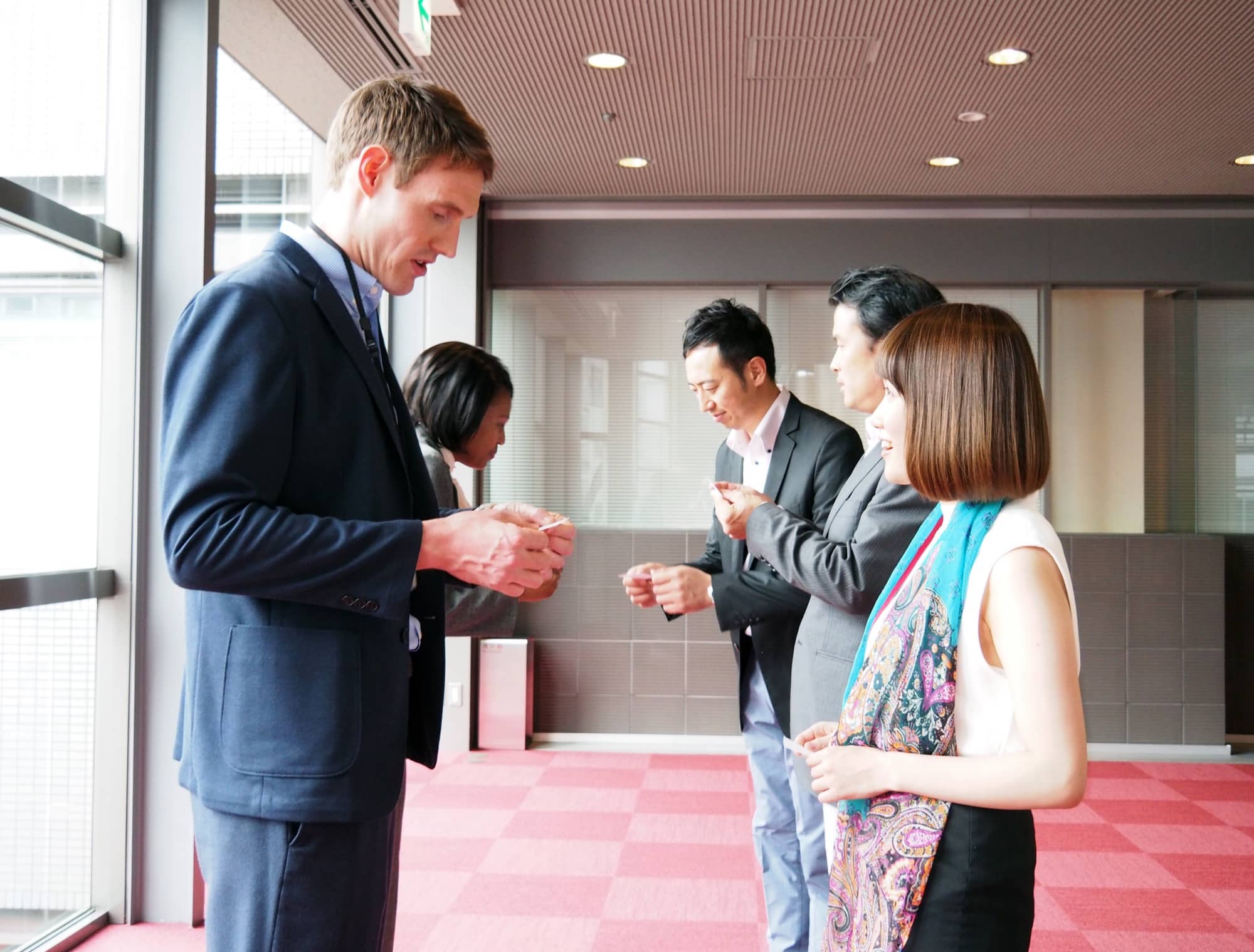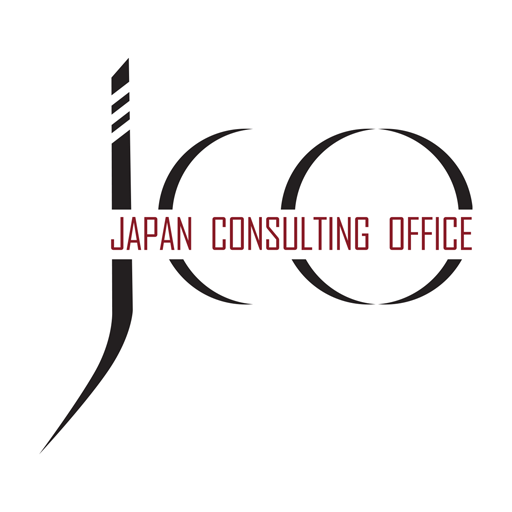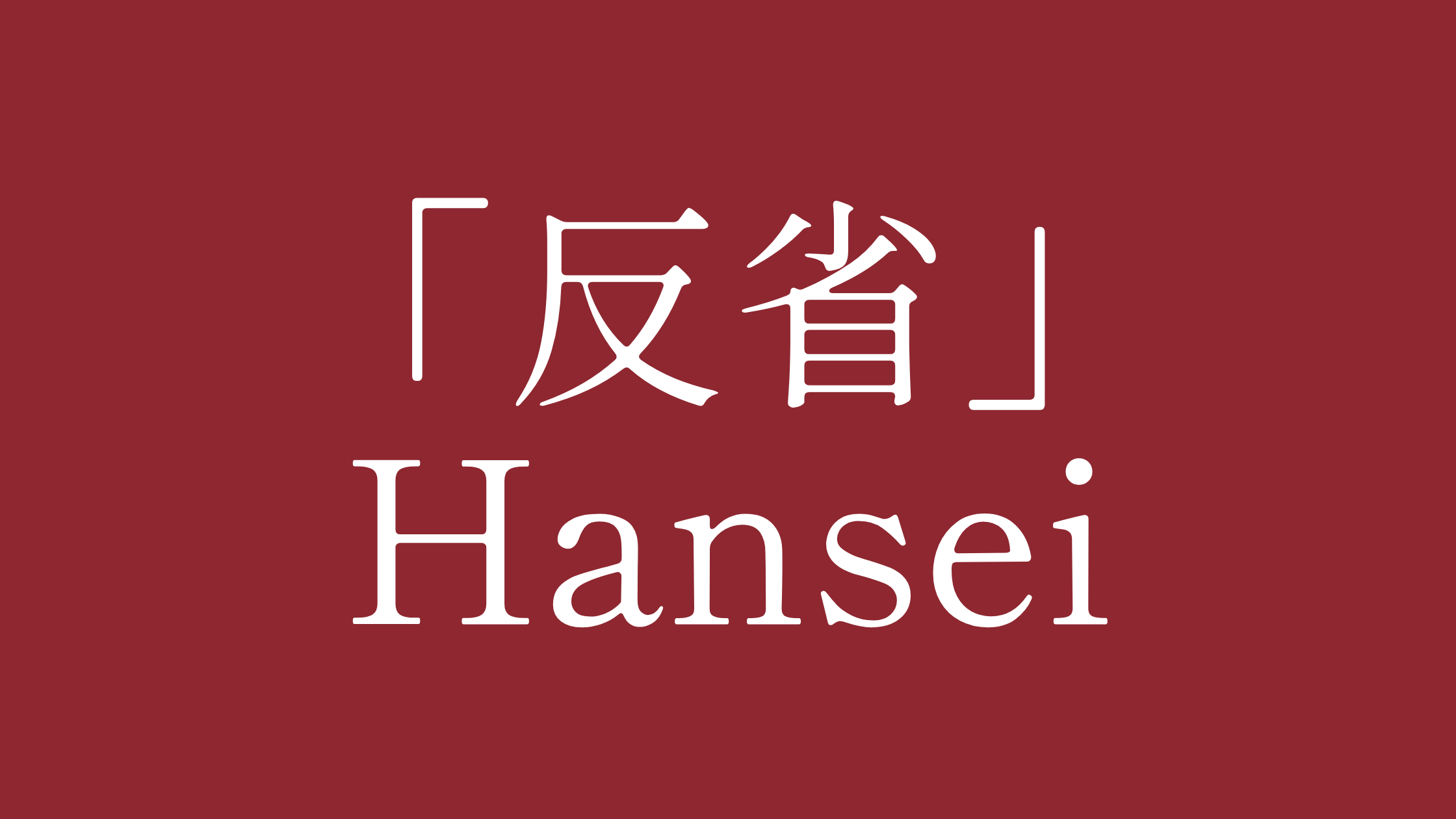
When asking a Japanese employee about his non-Japanese colleagues, they might tell you that "they don't apologize enough" or that "they make excuses". Indeed, when something goes wrong, we tend to focus more on explaining the situation and reasons behind the mistake rather than directly taking responsibility. But why do Japanese negatively perceive this as "making excuses"? To understand this, it is necessary to introduce the cultural concept of hansei.
Hansei can be translated as something like "self-reflection" or "introspection". At first sight, this may not seem like a foreign idea to us, since all people engage in introspection to some extent. However, it goes much deeper than simply thinking about past actions. Even from a young age hansei is done as a conscious exercise: students must critically reflect on their behavior in the classroom as well as after field trips and other events. This stems from the idea that learning about your own shortcomings is an essential step in the process of becoming an adult. But it does not end there: a crucial aspect, and the ultimate goal of hansei, is changing your actions for the better, based on the knowledge you have gathered.
The idea of hansei also permeates Japanese business culture. A Japanese employee who makes a mistake will naturally engage in hansei. In practice, he will first express his regret to his boss and take responsibility for his actions. Then, after having identified what exactly went wrong (without trying to look for excuses), he will commit himself to improve his behavior in the future. That is in fact what also lies behind the kaizen (continuous improvement) concept. But even when there is nothing wrong in particular, many companies such as Toyota will carry out regular Hansei-kai (reflection meetings) in an effort to further increase their performance.
Having explored the concept hansei, we can understand why our Japanese colleagues have the feeling we sometimes hide behind "excuses". It is important to keep in mind that for Japanese, apologizing, reflecting on what you should have done and what you will do differently in the future, are key aspects of a process of self-improvement





